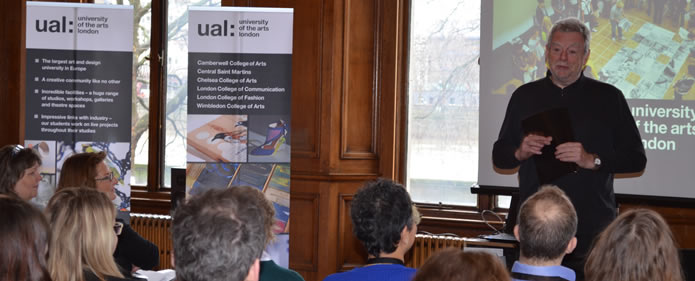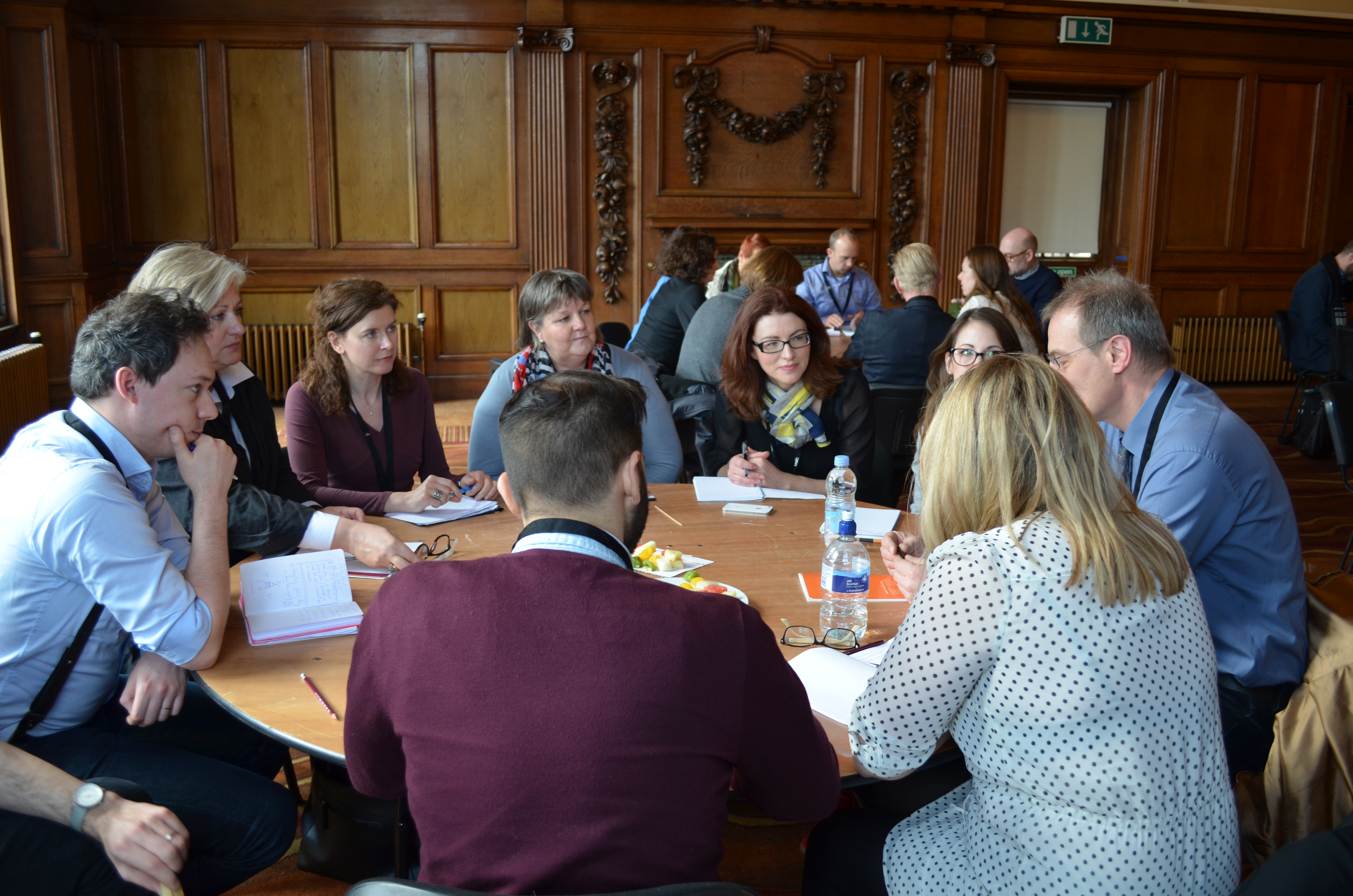
Through Key Action 1 University of the Arts London have been able to see a range of benefits from undertaking staff mobilities.
In 2014 University of the Arts London (UAL) approved an International Mobility Strategy for 2014-2020 with the overall aim to increase student and staff mobility. The University’s Strategy for 2015-22 reaffirmed this commitment at the highest level, expressed as a strategic action, committing to increased investment in international exchanges of staff and students. As a result of this strong strategic steer, and incredible efforts, they saw their take up soar from just 9 staff mobilities in 2013-14, to 42 in 2014-15. This was against a target increase of 50%.
Why do UAL regard staff mobility as so important?
 UAL is already an ‘international’ institution, it is Europe’s largest specialist art and design institution with over 19000 students from 113 countries; 49% of their students come from outside the UK. A key component in internationalising the curriculum and student experience is about providing opportunities and encouraging their staff to engage with mobility both within and beyond Europe. Creative subjects are taught very differently in different countries, and even within Europe they recognise different pedagogical approaches. Enabling and encouraging their staff to visit partner institutions under Key Action 1 allows them to identify and explore different approaches to teaching and learning practices, and to understand better the different contexts from which their students originate. It widens both their professional practice and professional networks, frequently kick-starting wider collaborations with partner institutions such as EU funded mobility and research projects. Having taken an active part in the Erasmus+ programme themselves, staff members are able to provide better advice and support to UAL mobile students.
UAL is already an ‘international’ institution, it is Europe’s largest specialist art and design institution with over 19000 students from 113 countries; 49% of their students come from outside the UK. A key component in internationalising the curriculum and student experience is about providing opportunities and encouraging their staff to engage with mobility both within and beyond Europe. Creative subjects are taught very differently in different countries, and even within Europe they recognise different pedagogical approaches. Enabling and encouraging their staff to visit partner institutions under Key Action 1 allows them to identify and explore different approaches to teaching and learning practices, and to understand better the different contexts from which their students originate. It widens both their professional practice and professional networks, frequently kick-starting wider collaborations with partner institutions such as EU funded mobility and research projects. Having taken an active part in the Erasmus+ programme themselves, staff members are able to provide better advice and support to UAL mobile students.
(Pictured above): Staff from HEI partners across Europe attending the UAL Staff Week
All Staff Welcome
UAL recognises the value of staff mobility to all job functions. They have seen an increasing number of technicians access staff mobility, again enabling a wider exploration of professional practice. This year they have been encouraging more administrative staff to consider a staff mobility and this has been a great success. One member of staff working in project management and administration undertook a mobility to Finland during 2015. She commented:
“It was a great experience; they put together a fantastic programme for me that enabled me to see how another university operates within Europe, with different functions and processes, but with the same overarching aims of continually improving the student experience. I learned a great deal about higher education within a European context and it brought fresh insights to my own work. I also had a great time and made new friends.”
How have they made this happen?
Leadership and encouragement from senior management has been crucial. Each of the University’s four colleges was asked to respond to the Mobility Strategy with their own strategic statement, and target numbers. Other activities included:
- Regularly promoting staff mobility opportunities for teaching/training under the Erasmus+ programme. Mobility opportunities were presented during UAL staff development days, information sessions at UAL Colleges, senior management team meetings as well as individual consultations.
- Introducing an online application system for all UAL staff members. In 2014 UAL introduced specialist mobility software for capturing its international partnerships and processing online applications.
- Organising a UAL Erasmus+ Staff Week for incoming staff members. The organisation of the incoming staff week helped then to promote staff mobility opportunities for internal UAL staff as well as strengthen their existing Erasmus+ partnerships. This was very popular and they are planning to make this an annual event.
- Setting up an Erasmus+ Steering Group with key stakeholders from colleges and business units. This has enabled processes to be set up and information shared.
Future Plans
- Regularly promote staff mobility, encouraging staff members from all groups of job families to participate.
- Promote to middle and senior management to demonstrate the value for their team members and for the wider benefit of the university.
- Capture feedback from staff members into a wider set of case studies and evaluative report that they can use as both a reflective document and as a promotional tool.
- Encourage colleges to track and record staff mobility experiences and their ongoing links with the partner institutions so they can see precisely how these experiences may lead to wider collaborations.
- Run another fabulous and creative Erasmus+ staff week in April!
Find out more about applying for staff mobility funding.
